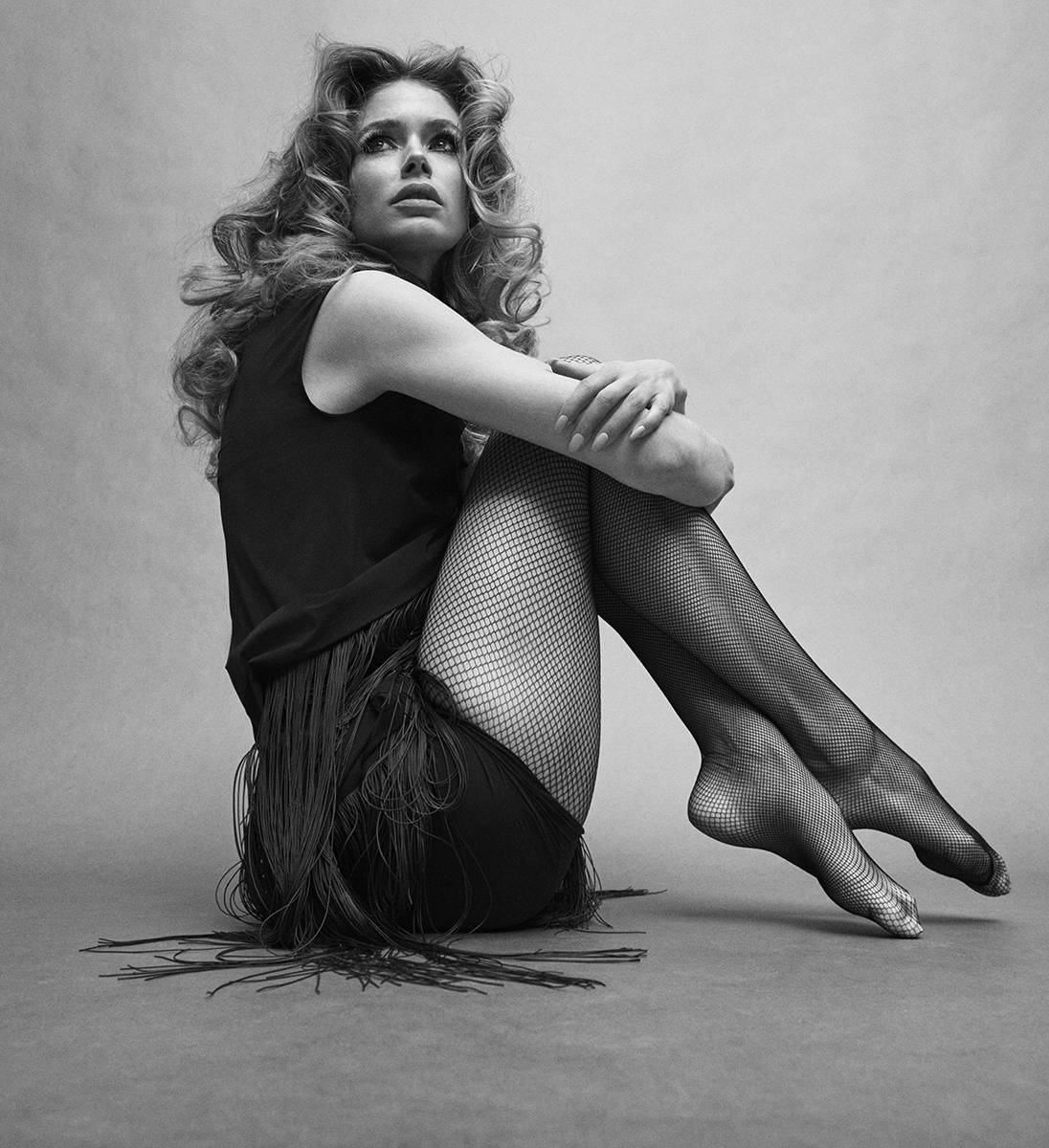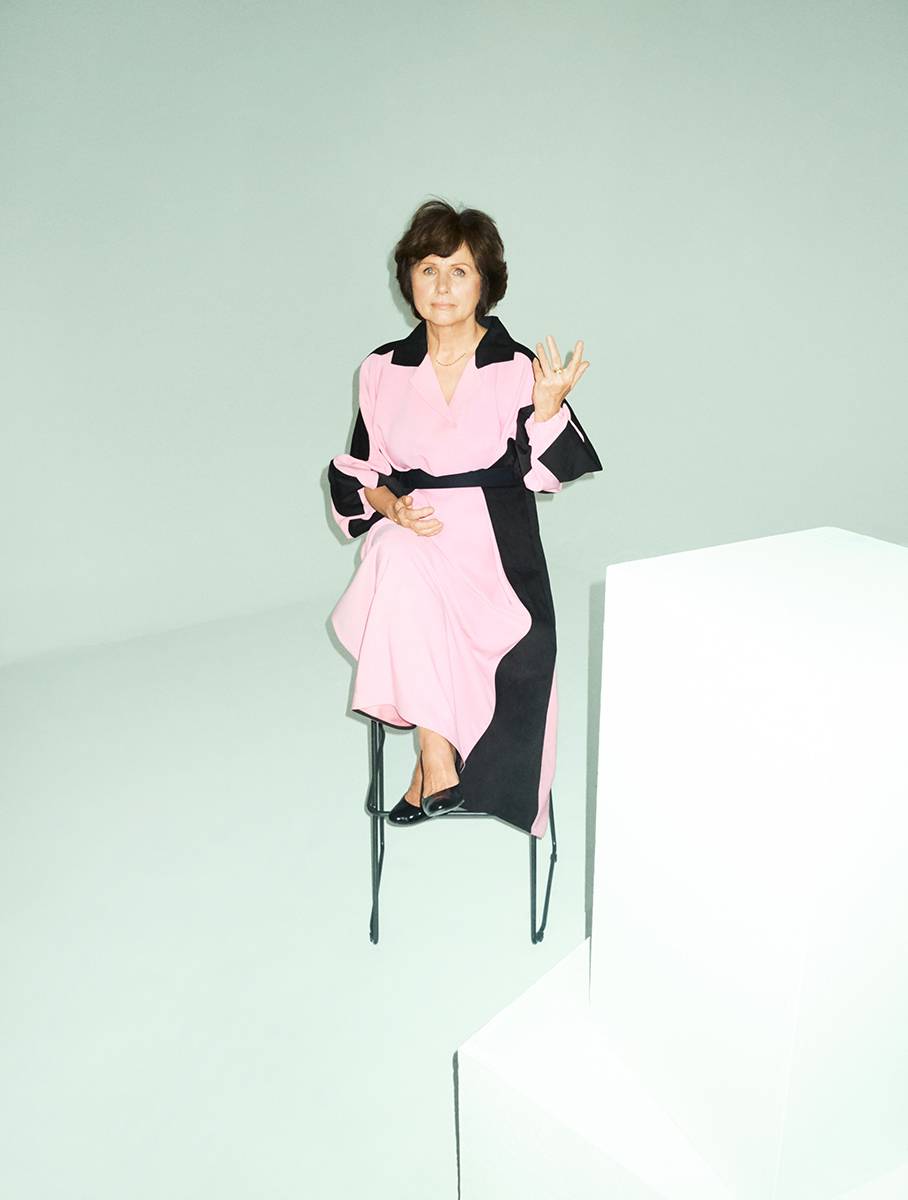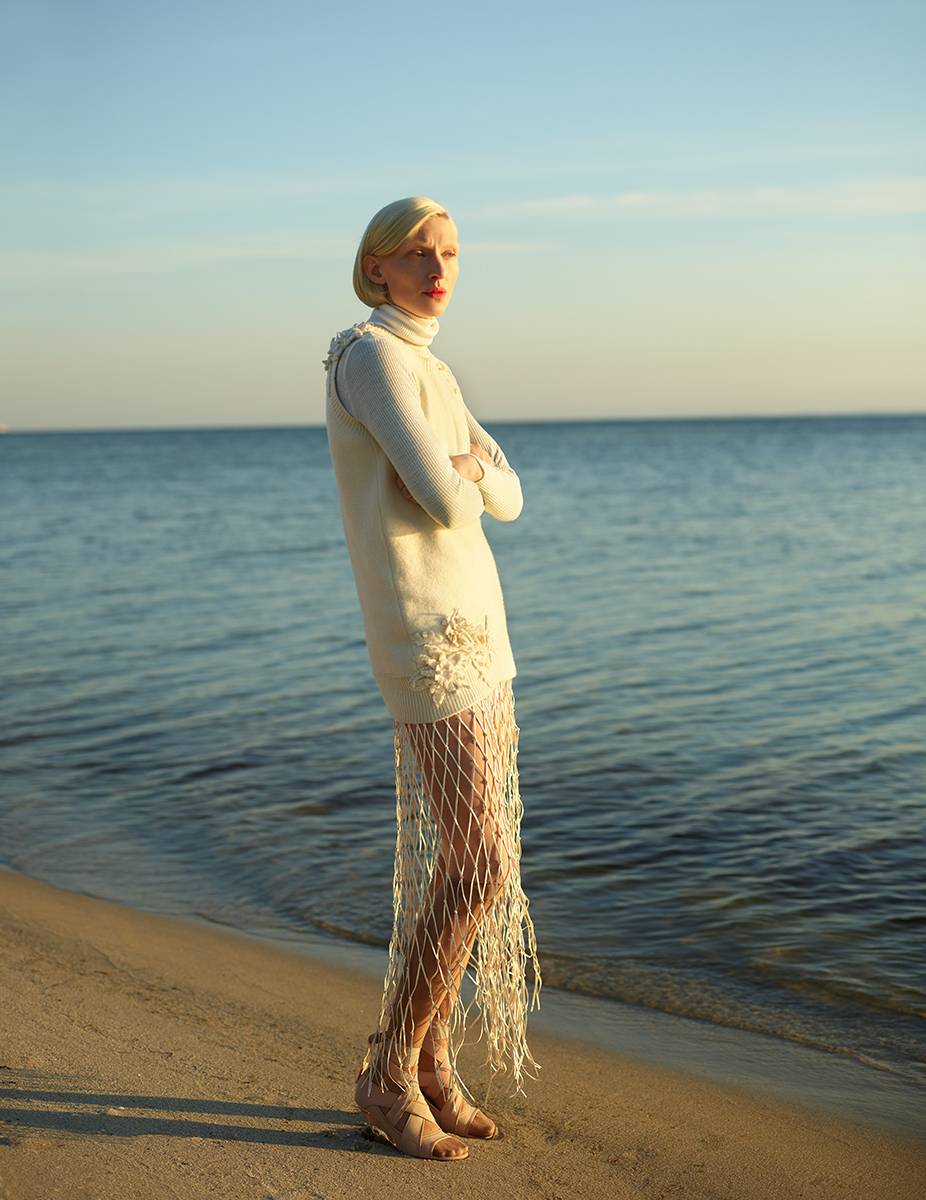
Holenderka Doutzen Kroes, piąta na liście najlepiej zarabiających modelek na świecie, aktywistka i aktorka, jest gwiazdą sesji okładkowej czerwcowego wydania „Vogue Polska”.
– Przyjechałam do Nowego Jorku kompletnie zielona. Mieszkałam z innymi modelkami i codziennie przemierzałam całe miasto w tę i z powrotem, chodząc na castingi. Z perspektywy czasu doceniam to, jak ciężko pracowałam na sukces – wyznawała top modelka Doutzen Kroes w rozmowie z redaktor mody, Eweliną Dziewielą. Wszystko potoczyło się błyskawicznie. Już w 2005 roku, dwa lata po wyprowadzce z holenderskiej wsi do centrum świata, Kroes pojawiła się na okładce włoskiej edycji „Vogue’a”, którą sfotografował sam Steven Meisel. Rok później podpisała kontrakt z marką L’Oréal Paris, z którą zresztą współpracuje do dziś. Została także aniołkiem Victoria’s Secret, o czym marzy każda modelka. Silny charakter i opieka agentów pozwoliły jej przetrwać najtrudniejsze chwile na początku kariery. Gdy dyrektorzy castingów w Nowym Jorku sugerowali, żeby schudła, Kroes zagroziła, że wróci do Holandii. – Uważali, że byłam zbyt krągła, a ja czułam się po prostu zdrową nastolatką – wyznała w rozmowie z „Vogue Polska”. – Miałam dobrze poukładane w głowie, wiedziałam, kim jestem – mówi mama dwójki dzieci.

Uczy je szacunku do siebie i innych, a także tego, że nie wszyscy mają w życiu tyle szczęścia co oni. Top modelka angażuje się więc w liczne inicjatywy społeczne. W 2016 roku założyła fundację Knot On My Planet, która walczy z kłusownictwem słoni i zbiera środki na Elephant Crisis Fund. Co więcej, od 2009 roku wspiera również holenderską organizację, która poprzez taniec edukuje nastolatki na całym świecie na temat bezpiecznego seksu.
W najnowszym numerze „Vogue Polska” rozmawiamy także z Sophie Turner. Aktorka, która słynie ze spontaniczności w wywiadach i niechęci do prezydenta Donalda Trumpa, opowiedziała Annie Tatarskiej o pracy nad serialem „Gra o tron”. Na jego planie spędziła pół życia. Turner nie unika trudnych tematów, podkreślając, że o problemach trzeba mówić głośno, nawet jeśli to boli. Wielokrotnie publicznie opowiadała o swoich zmaganiach z depresją. – W Europie i USA depresja to drugi powód samobójstw. Chorym trzeba pomagać, trzeba z nimi rozmawiać, zapewnić im miejsce, gdzie byliby bezpieczni i nie czuli się jak odmieńcy – wyznała w rozmowie z „Vogue Polska”.

Temat zdrowia psychicznego jest także bliski bohaterce sekcji „Autoportret”. Modelka Cleo Ćwiek, która tuż po maturze dowiedziała się, że cierpi na chorobę afektywną dwubiegunową, startuje właśnie z kampanią społeczną walczącą z tabu zaburzeń psychicznych. – Moje pierwsze działania społeczne na rzecz zdrowia psychicznego wydarzyły się trochę przypadkowo i choć wydawały się bardzo prowizoryczne i spontaniczne, spotkały się z dużo pozytywniejszymi reakcjami, niż bym się spodziewała – powiedziała Cleo w rozmowie z Anną Konieczyńską. Akcja i kampania społeczna pod hasłem „Można zwariować” ma pokazać, że choroba nie musi oznaczać zamknięcia na świat.

Kolejną inspirującą kobietą, z którą spotykamy się z okazji trzydziestolecia wolnej Polski, jest Ewa Balcerowicz. Absolwentka SGPiS w 1989 roku odłożyła na jakiś czas swoją karierę, żeby wspierać męża, Leszka Balcerowicza. Mimo że przed ślubem na kartce wypisali podział obowiązków domowych, jesienią 1989 roku Ewa Balcerowicz schowała ją głęboko do szuflady. – Byłoby szaleństwem z mojej strony domaganie się, by mąż uczestniczył wtedy w domowych obowiązkach – wyznała. Nigdy nie czuła jednak, że się poświęca. To była jej świadoma decyzja, mimo że przyznaje, iż bardzo się bała, że mężowi się nie uda. Przez 30 lat unikała mediów i wywiadów, ale dla polskiego „Vogue’a” zrobiła wyjątek. Katarzynie Kolendzie-Zaleskiej opowiedziała o tym, jak poznała męża, o wspólnym życiu i trudnych momentach podczas transformacji, a także recepcie na udany związek.

Własną ścieżką podąża także córka Jane Birkin i siostra gwiazdy okładkowej majowego wydania „Vogue Polska”, Lou Doillon. Artystka, która nie tylko gra i śpiewa, ale również pisze teksty i muzykę, przyznaje, że w każdej piosence zawiera historię ze swojego życia. – Pochodzę z gwiazdorskiej rodziny, więc nie fascynuje mnie sława, bo wiem, co za sobą pociąga – powiedziała w rozmowie z „Vogue Polska”. Wokalistka, modelka i matka długo szukała swojej drogi, ale zawsze widziała, że chce tworzyć.

W najnowszym numerze magazynu nie zapominamy także o modzie. Sesję „Plaża lepsza od wybiegu” ze zjawiskową Maggie Maurer przygotowaliśmy w Juracie. Na Hel wybraliśmy się w połowie kwietnia, kiedy na plaży, molo czy deptaku próżno szukać tłumu turystów. W czerwcowym numerze przyglądamy się także markom, które angażują się ekologicznie i społecznie. Redaktor mody Ewelina Dziewiela wybrała więc w subiektywnym zestawieniu marki, które dowodzą, że „moda może być piękna, etyczna i do tego z przesłaniem”.

Odwiedziliśmy także londyńskie mieszkanie Grety Bellamaciny, która jest nie tylko modelką, ale również poetką, aktorką i reżyserką. Pięć lat temu jej pierwszy zbiór wierszy „Kaleidoscope” znalazł się na liście nominowanych do nagrody Young Poet Laureate of London, a w tym roku jej film „Hurt by Paradise” debiutuje na festiwalu filmowym w Cannes. Młoda Brytyjka i matka dwójki dzieci lubi wyróżniać się z tłumu. Zawsze stawia na sukienki i spódnice i jak podkreśla, w szafie nie ma ani jednej pary spodni.

W dziale urody bierzemy pod lupę nieinwazyjne zabiegi modelujące sylwetkę, a także obalamy mity związane z jedzeniem pieczywa. Dyrektor kreatywna polskiej edycji „Vogue’a” Małgosia Bela w Migawkach wspomina swoje pierwsze testy w Nowym Jorku oraz fotografów, z którymi pracowała. W dziale kultury przybliżamy postać młodego aktora Tarona Egertona, który zagrał główną rolę w filmie o Eltonie Johnie. „Rocketman” będzie miał oficjalną premierę na tegorocznym festiwalu filmowym w Cannes. Polecamy także powieść Nino Haratischwili „Kotka i generał” oraz reportaż Aleksandry Boćkowskiej „Warto wybierać” o wyborach 1989 roku. W Poznaniu odwiedzamy natomiast willę kolekcjonerów sztuki Joanny i Krzysztofa Madelskich, gdzie mieszkają i prowadzą galerię sztuki. Z kolei w Dwugłosie historyczka literatury i feministka Kazimiera Szczuka dyskutuje z pisarzem Jackiem Dehnelem o uroku i sile języka, a także o internetowym hejcie i metaforach. Na koniec w sekcji RSVP przypominamy pierwszy w Polsce Shopping Experience powered by Vogue Polska, który odbył się w The Designer Gallery w Galerii Mokotów. Podczas wydarzenia goście mogli się spotkać z przedstawicielami redakcji, skorzystać z porad stylistów i makijażystów, a także wziąć udział w warsztatach prowadzonych przez osobowości ze świata mody i urody.
„Vogue Polska” w kioskach od 16.05.




Zaloguj się, aby zostawić komentarz.